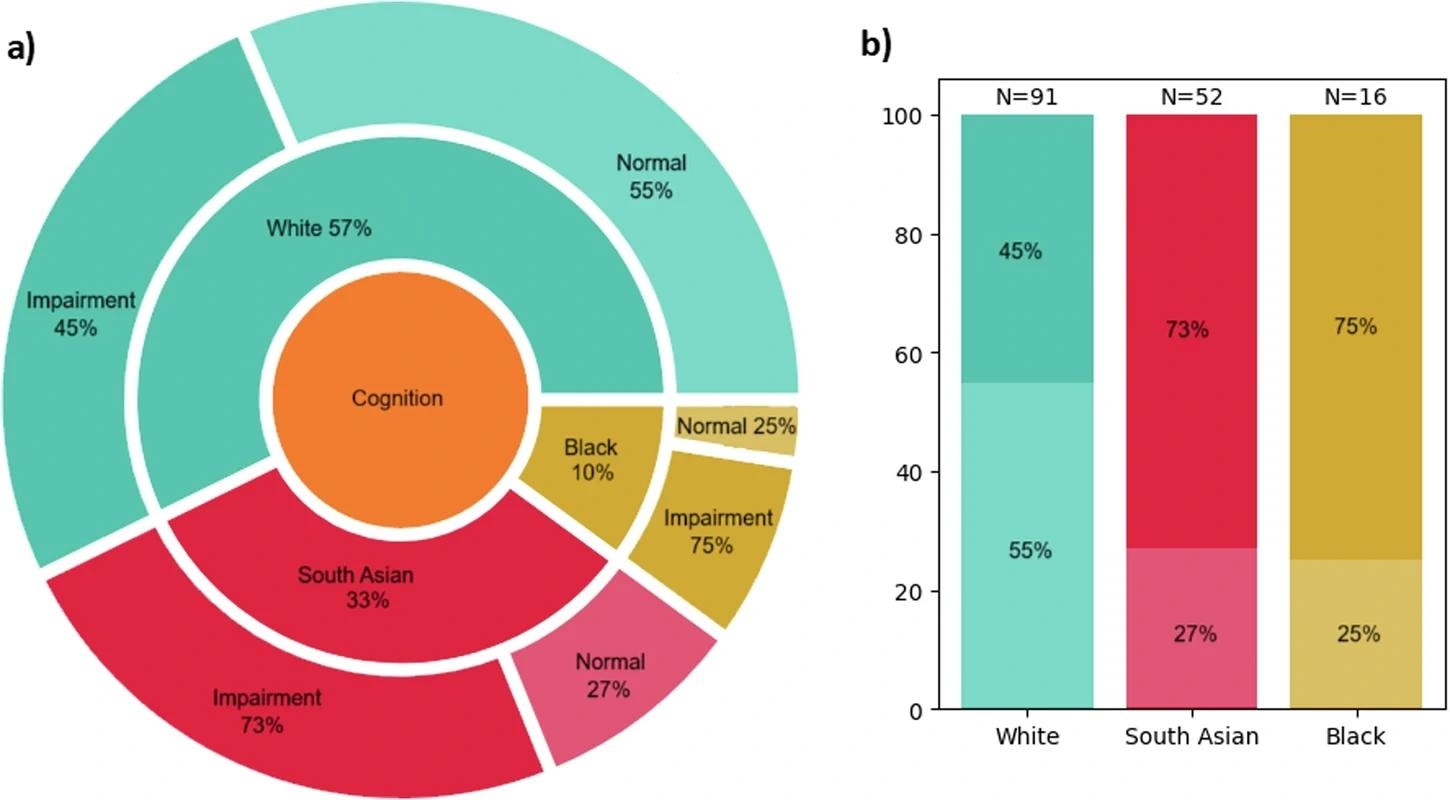A landmark UK study reveals that South Asian and Black patients with Parkinson’s suffer worse symptoms, even with equal access to care, spotlighting urgent gaps in diagnosis and support for diverse communities.
 Study: The East London Parkinson’s disease project – a case-control study of Parkinson’s Disease in a diverse population. Image Credit: Kotcha K / Shutterstock
Study: The East London Parkinson’s disease project – a case-control study of Parkinson’s Disease in a diverse population. Image Credit: Kotcha K / Shutterstock
In a recent study published in the journal npj Parkinson's Disease, researchers utilized data from the East London Parkinson's Disease project to compare Parkinson's Disease (PD) clinical outcomes across the UK's diverse ethnic backgrounds. Study findings revealed that South Asian and Black PD patients performed significantly worse in motor score evaluations than their White counterparts.
Cognitive impairment was similarly substantially more prevalent in minority patients (75% Black, 73% South Asian) compared to White ones (45%). While there was weak evidence that South Asian patients had a slightly earlier age of symptom onset, the time from symptom onset to diagnosis was found to be similar across all groups. These findings highlight the urgent need for policy reforms for more inclusive neuroscience research and suggest that factors beyond diagnostic access may be driving these disparities in underrepresented populations.
Background
Parkinson's disease (PD) is a neurodegenerative disorder best known for its progressive exacerbation of motor symptoms, including tremors, rigidity, and slowed movement. However, PD is also associated with a wide range of non-motor complications, such as cognitive impairment.
Decades of clinical and genetic studies have contributed much to the scientific understanding of PD outcomes and genetic predispositions. Recent technological advancements, including next-generation multiomics tools and artificial intelligence (AI)-assisted statistical models, have progressed our understanding of PD pathophysiology by leaps and bounds.
Unfortunately, most of what we know about the disease comes from studies involving predominantly White, Western European populations. These populations are genetically distinct and typically more affluent and educated than South Asian, Black, and other ethnic minorities.
The absence of ethnically diverse cohorts has left crucial questions unanswered: Does PD manifest differently in underrepresented groups? Are patients from racial minorities more severely affected or simply diagnosed, and therefore treated later? As modern medicine allows the global population to age, understanding how Parkinson's unfolds across different racial and cultural contexts is vital for research accuracy and for building a healthcare system that serves all patients equitably.
About the Study
The present study leverages data from the East London Parkinson's Disease project, one of the UK's most ethnically diverse urban population cohorts, to elucidate differences in age at diagnosis and clinical PD outcomes between White, South Asian, and Black ethnic groups. The study employed a case-control design and collected data across multiple community health services and National Health Service (NHS) clinics between 2019 and 2024.
Participants included in the study were classified as 'cases' (MDS 2015 confirmed PD diagnosis) or 'controls' (age-matched volunteers without a medical history of neurological illness). Collected data included demographic information (age, sex, ethnicity, and education status), medical history (including PD diagnoses and treatments), and economic variables.
Clinical assessments were conducted using previously validated and standardized diagnostic tools, such as the Unified Parkinson's Disease Rating Scale (UPDRS), to evaluate motor function. Cognitive performance was assessed via memory, attention, and executive function tests, primarily using the Montreal Cognitive Assessment (MoCA).
Between-group comparisons were made using T-tests, χ2 tests, Mann-Whitney U tests, and Fisher's exact tests. Logistic regression models were leveraged to identify the strengths of clinical PD outcomes. All models were adjusted for confounding demographic, medical, and socioeconomic variables, especially age, gender, and disease duration.
Study findings
 a Percentage of patients from White (blue), South Asian (red) and Black ethnicity (yellow). b Detailed bar chart of cognitive status for each ethnic group. Classification based on MoCA: darker shade - cognitive impairment (≤25), lighter shade - normal cognition (>25).
a Percentage of patients from White (blue), South Asian (red) and Black ethnicity (yellow). b Detailed bar chart of cognitive status for each ethnic group. Classification based on MoCA: darker shade - cognitive impairment (≤25), lighter shade - normal cognition (>25).
After excluding patients with 'secondary parkinsonism,' alternative neurological or movement disorder diagnoses, and those providing incomplete baseline data, the final study cohort comprised 218 PD patients and 90 healthy controls (total n = 318; 37% female), a majority of whom (64% controls, 50% patients) belonged to minority ethnic groups. Bangladeshis (49%) and Black Africans (71%) were the dominant ethnicities in South Asian and Black subcohorts, respectively.
Age at symptom onset analyses revealed weak evidence that South Asian patients developed PD slightly earlier (59.2 yrs) than their White (62.6 yrs) or Black (64.4 yrs) counterparts. Crucially, the time from symptom onset to diagnosis was similar across all three ethnic groups, which the authors noted was a positive finding suggesting equivalent access to primary care and awareness of PD symptoms in East London.
Patients of South Asian and Black descent had significantly worse Movement Disorders Society - Unified Parkinson's Disease Rating Scale (MDS-UPDRS) motor scores than their White counterparts (42.2, 47.0, and 35.2, respectively). Objective motor assessments, such as the BRAIN test, also showed worse performance in South Asian patients, though the authors noted that factors like low computer literacy could influence these specific results.
Cognitive impairment showed an equally striking divide between White and minority groups: 75% of Black patients and 73% of South Asian patients demonstrated cognitive dysfunction, compared to just 45% of White patients. This included problems with memory, planning, and visual-spatial reasoning, significantly impairing quality of life (QoL). Furthermore, the burden of specific non-motor symptoms differed, with South Asian patients reporting worse depression and sleep quality, and Black patients showing a more significant deficit in smell identification compared to White patients. However, the study's authors added an important caveat: the cognitive test used has been shown to have language, literacy, and cultural biases, and they stressed that such screening tools developed in White, English-speaking countries may not be the most appropriate for diverse populations without cultural adaptation.
Conclusions
This study delivers clear evidence that PD impacts racial groups differently, with the authors suggesting that more severe motor and cognitive outcomes may be present in Black and South Asian patients compared to White ones. In doing so, it challenges the long-standing assumption that Parkinson's presents uniformly across racial groups, restricting the global generalizability of White-focused PD knowledge.
These disparities appear to exist despite equitable time to diagnosis, and the paper suggests they may be driven by various factors, such as unmeasured genetic or environmental influences, or a higher prevalence of comorbidities like type 2 diabetes in South Asian patients. While more research is needed to determine the underlying causes, the findings underscore the need for ethnically tailored screening and care protocols that account for these differences.
Journal reference:
- Zirra, A., Dey, K.C., Camboe, E. et al. The East London Parkinson’s disease project -- a case-control study of Parkinson’s Disease in a diverse population. npj Parkinson's Disease. 11, 172 (2025), DOI: 10.1038/s41531-025-01031-x, Publication link: https://www.nature.com/articles/s41531-025-01031-x